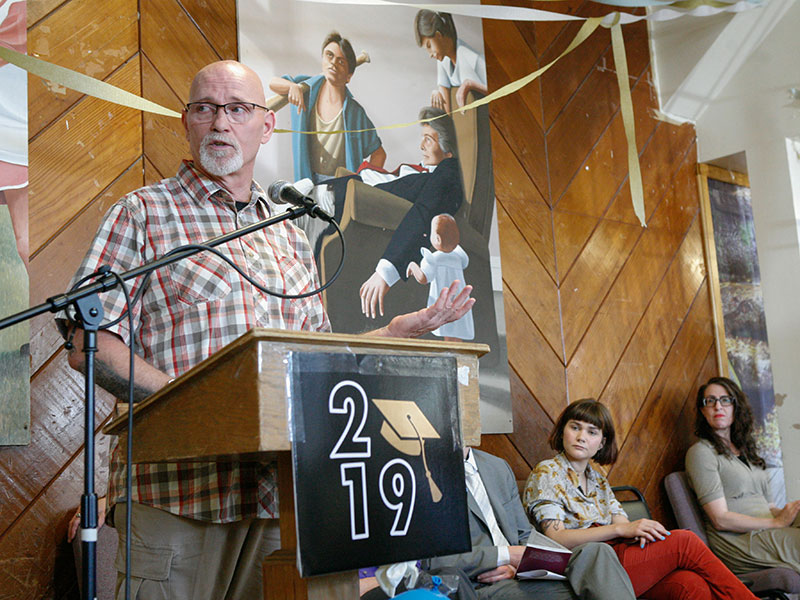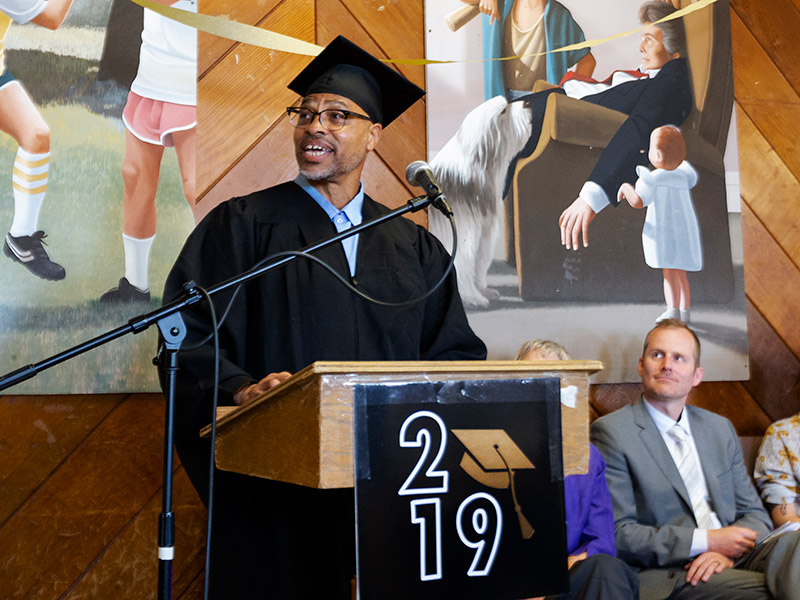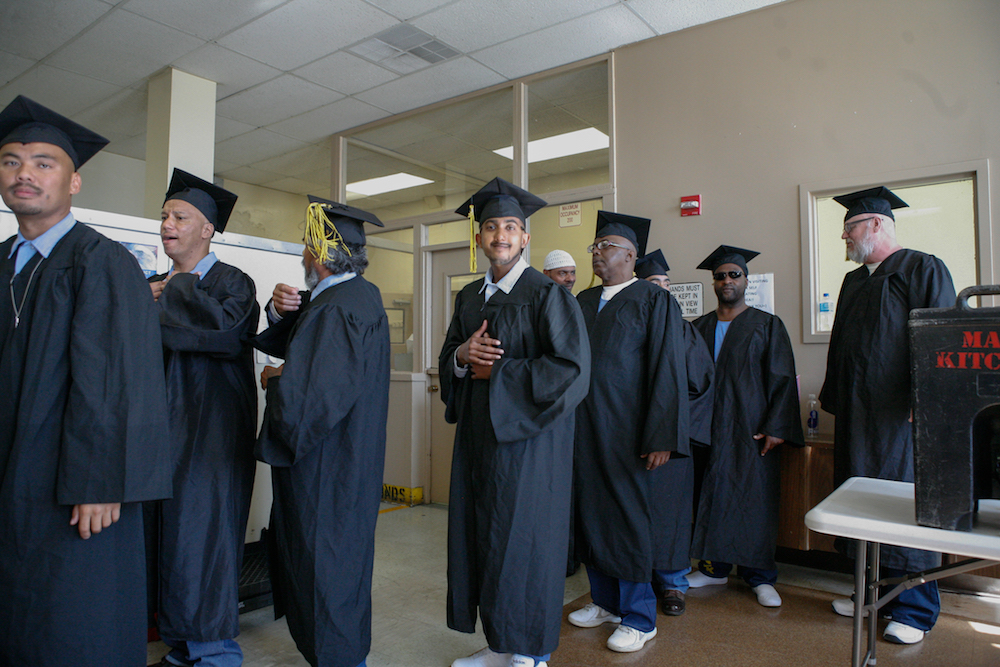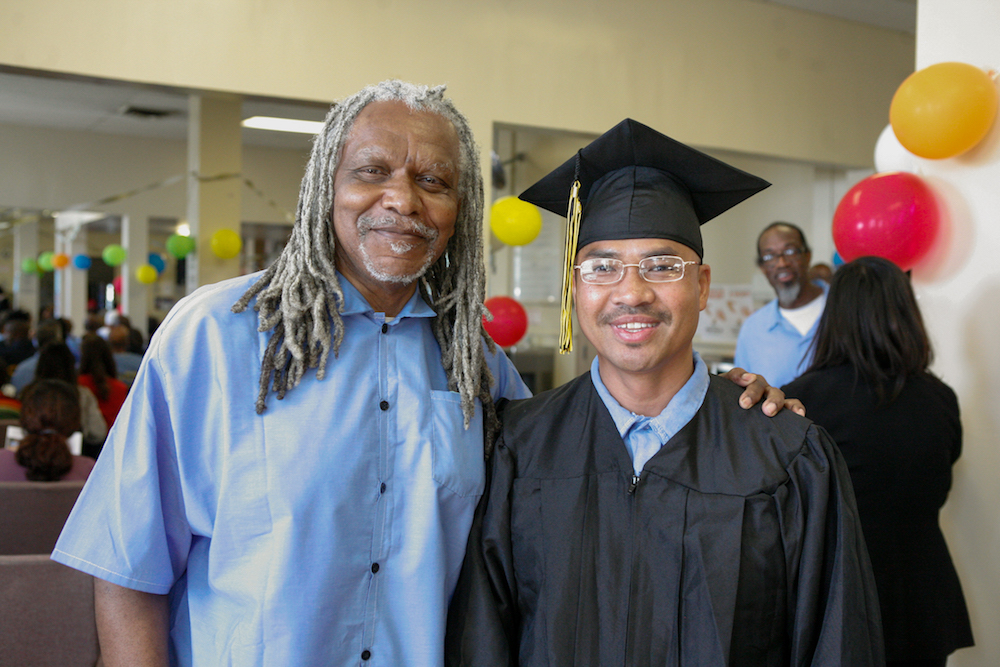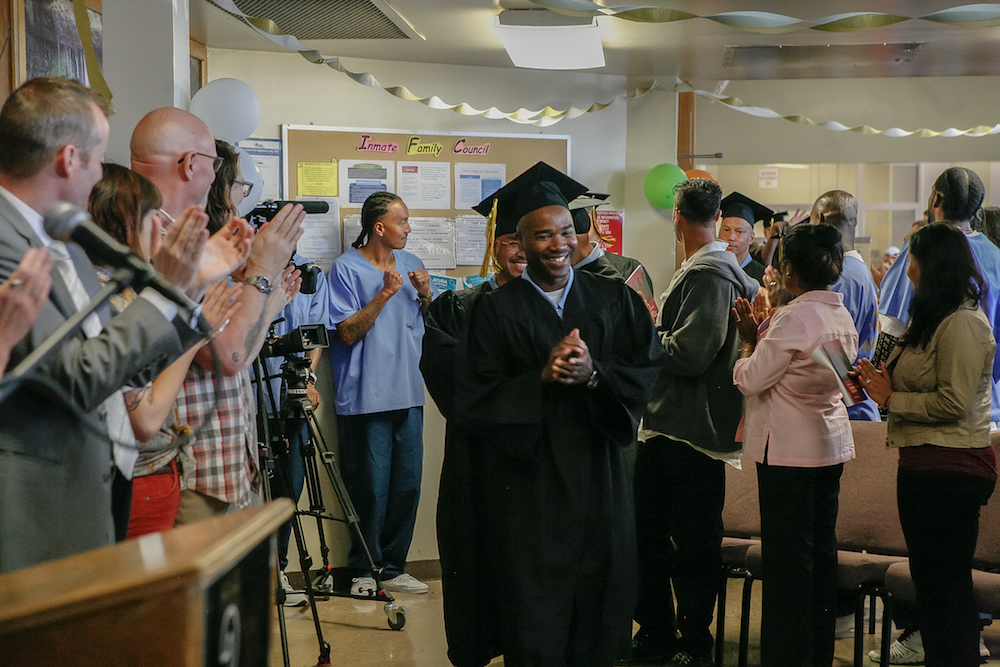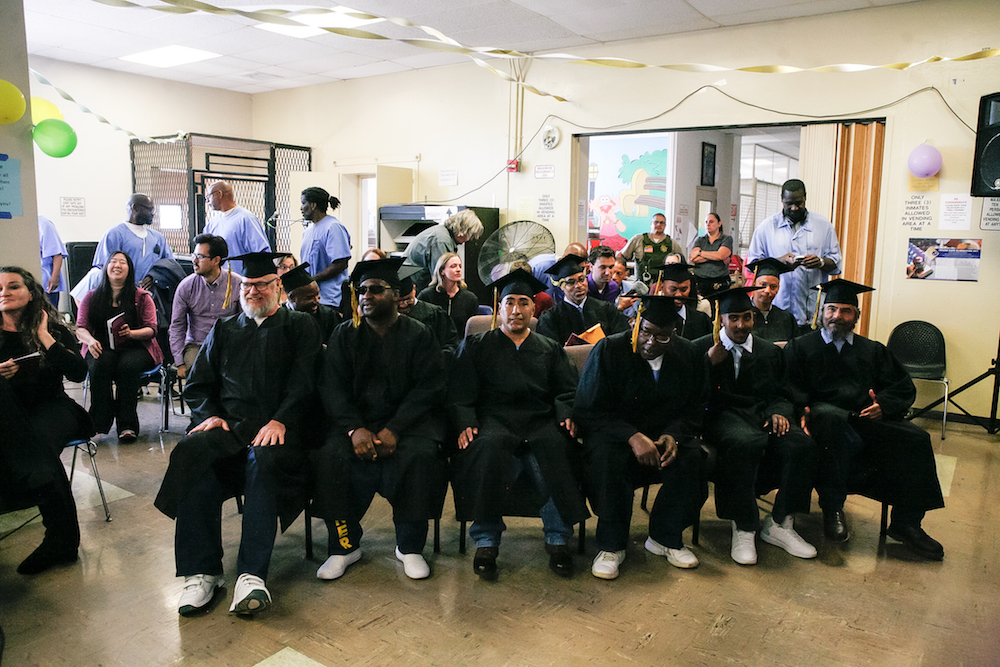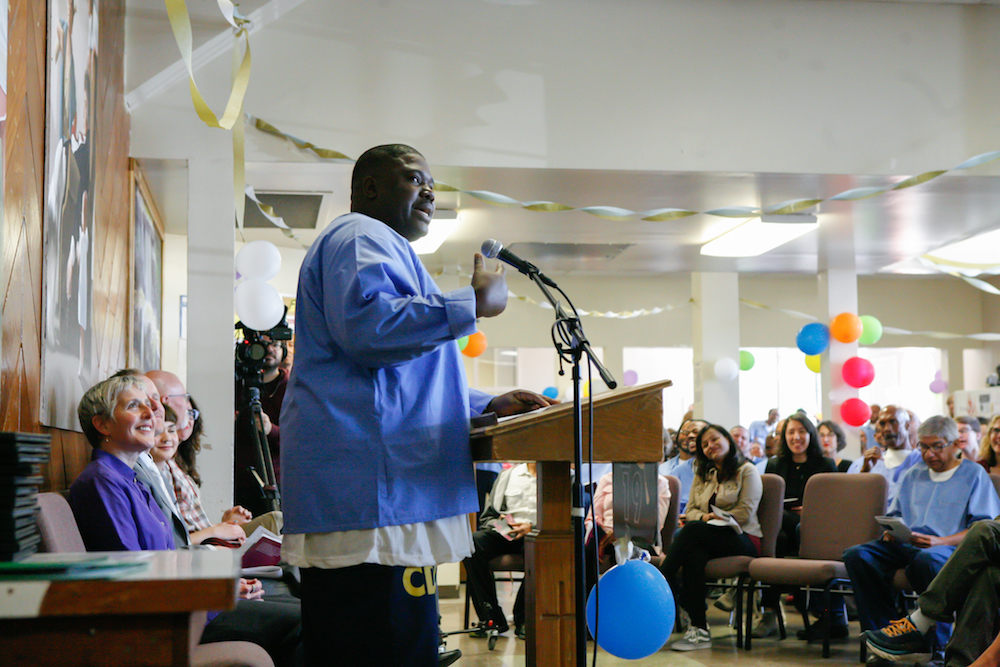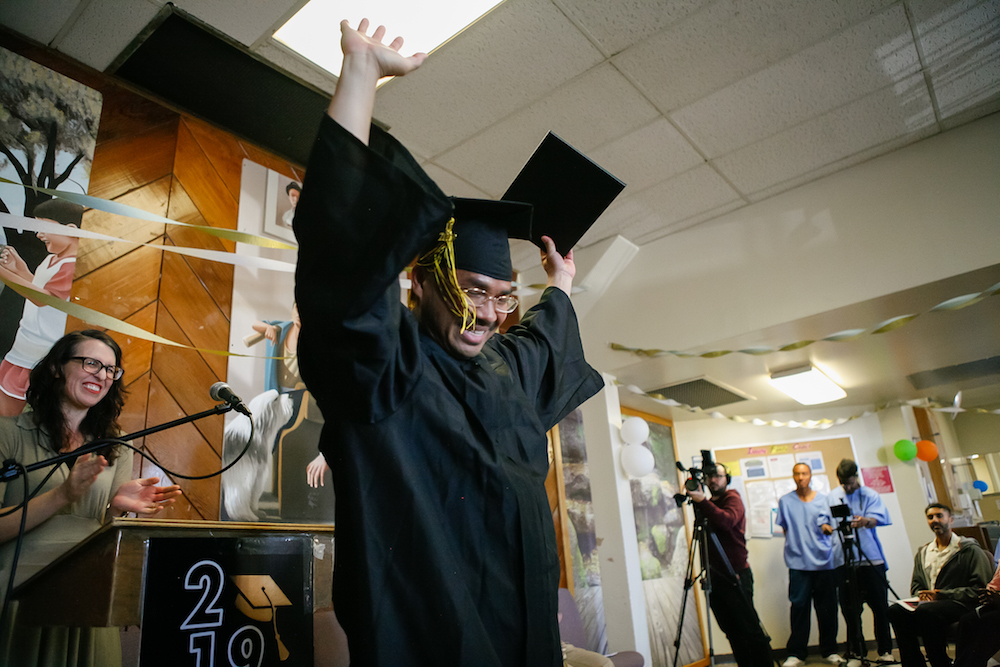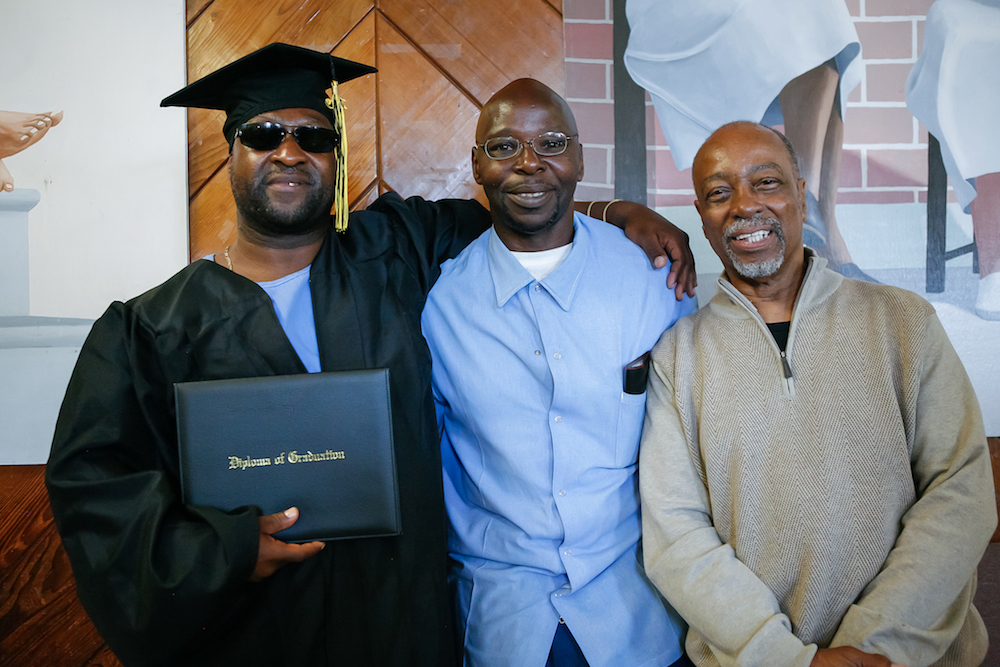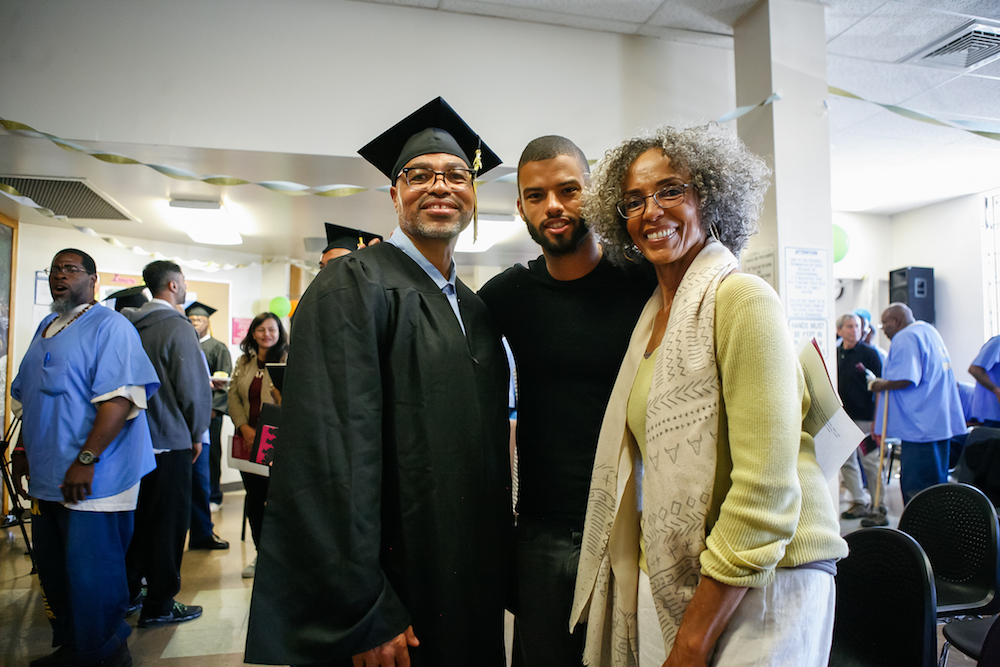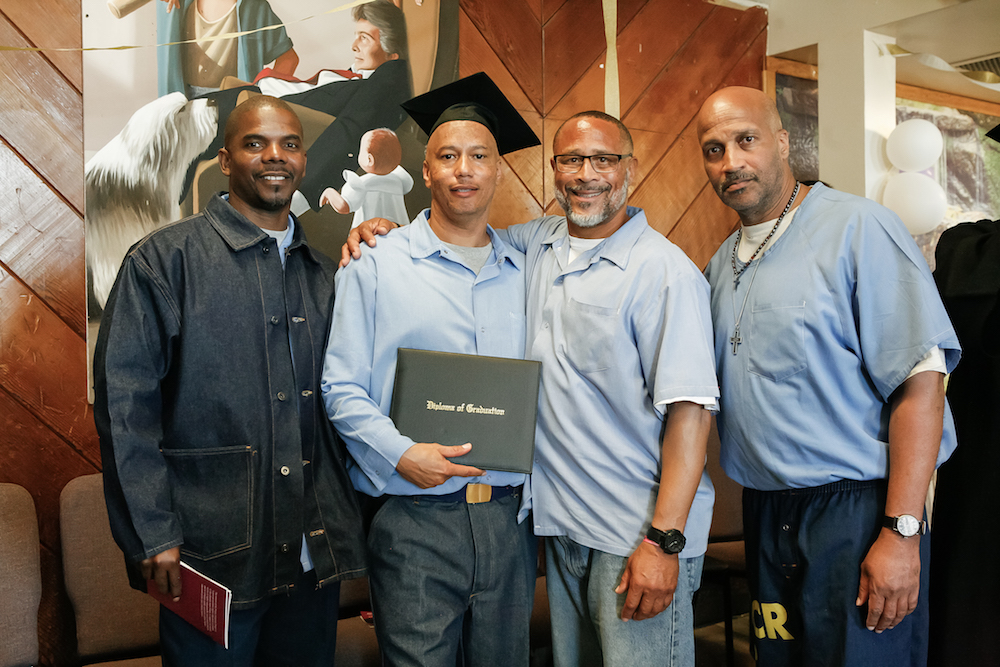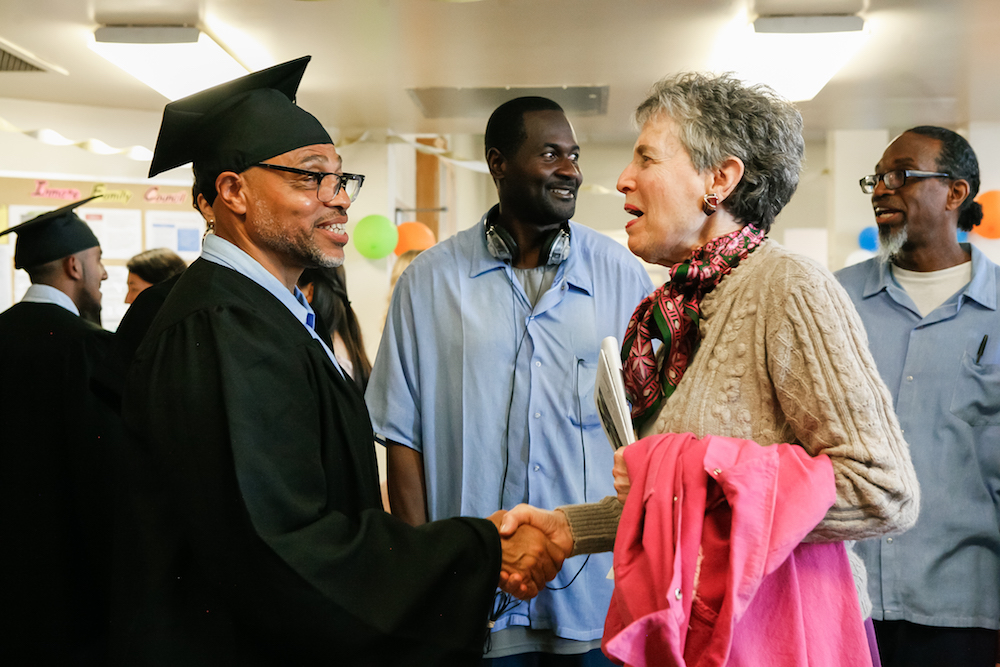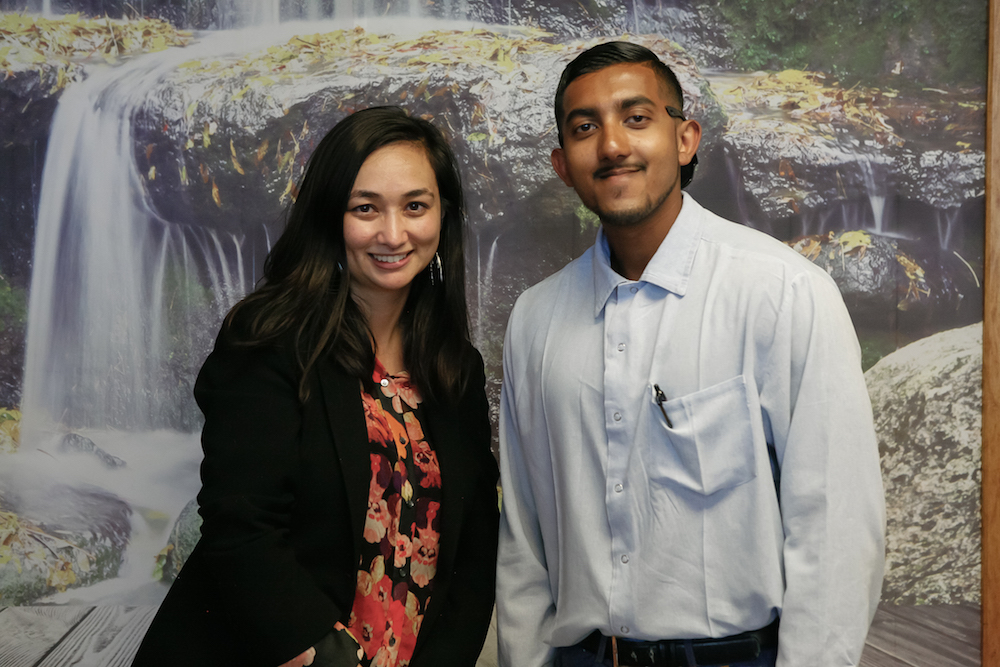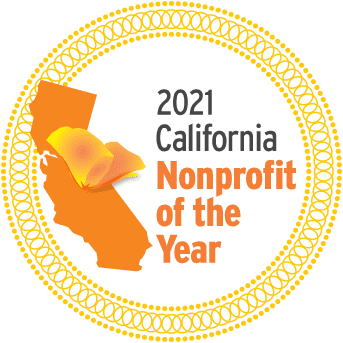2019 Commencement
On June 7, we hosted our annual commencement ceremony in the visiting room at San Quentin State Prison. Twelve graduates received their Associate of Arts degrees surrounded by family, friends, fellow students, MTC staff and board members, and other supporters.
Keynote Address
Kenneth Hartman, a freelance writer and Development Coordinator and Prison Program Specialist at The Catalyst Foundation, delivered the keynote address, sharing his own experience of incarceration and life after release, urging them not to give up or give in, because their lives matter.
Valedictorian Address
Tommy "Shakur" Ross gave the valedictory speech, highlighting how college helped him to develop social and emotional coping skills and reflecting one of our College's fundamental values: education is a human right and a vehicle for self-discovery, growth, and connection.
Please note: Previous to September 2020, Mount Tamalpais College operated at San Quentin State Prison as the Prison University Project and students received their degrees from our accredited university partner, Patten University.
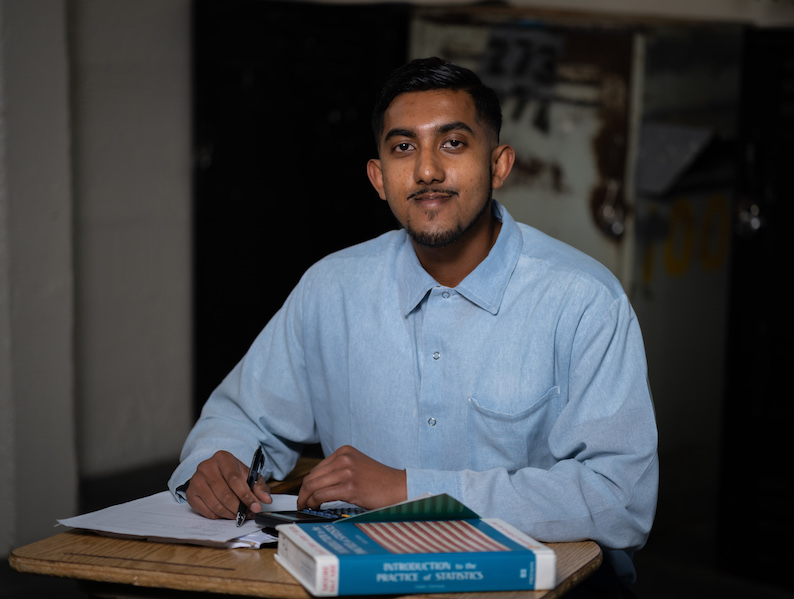
SUMIT LAL
“When I was younger, I enjoyed learning but the peer pressure from those I believed to be my friends outside caused me to veer away from that path. The College Program brought me back to the kind of person I was always meant to be—the kind I always wanted to be, the kind my family wanted me to be and could be proud of. Today, I can hold intelligent conversations with people I truly respect. I have made the kind of connections that will last a lifetime and which showed me that I can be comfortable among educated people, that I belong with them and not with the negative influences that I allowed to take me away from the learning environment I always loved.”
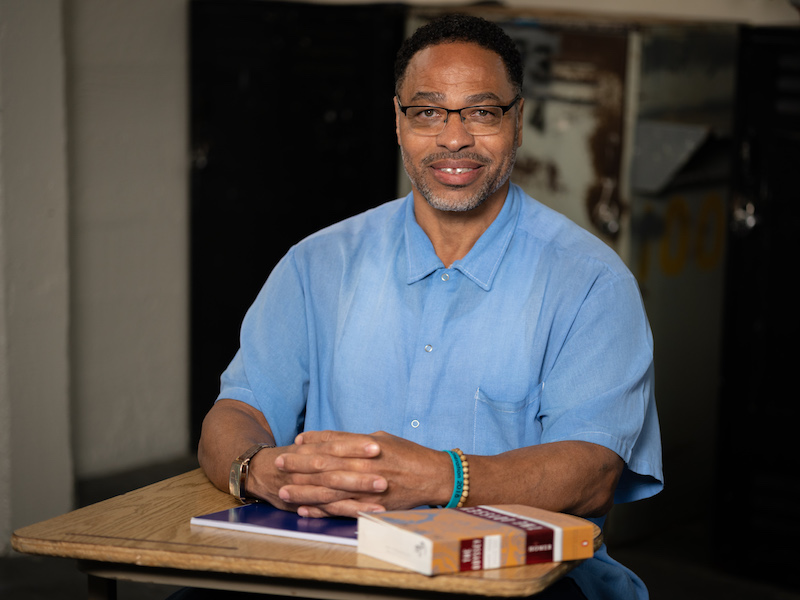
TOMMY “SHAKUR” ROSS
“In my early semesters, I lacked the social skills required in a college/classroom setting. Naturally, this discouraged me from participating in classroom discussions, or asking for help. However, the more eager I became to learn, the more inquisitive I came to be. I began being more proactive by asserting myself, and raising my hand more often. I’d say things like, “I believe I was next,” or “Excuse me, I have something to say.” As a result, I began feeling more confident, and started sitting in the front of the class. I became motivated to be the best student I could be, and decided I will not deny myself the opportunity to learn as much as I could. The College Program taught me both social and coping skills, impacting not only my academic intelligence, but my emotional intelligence as well.”
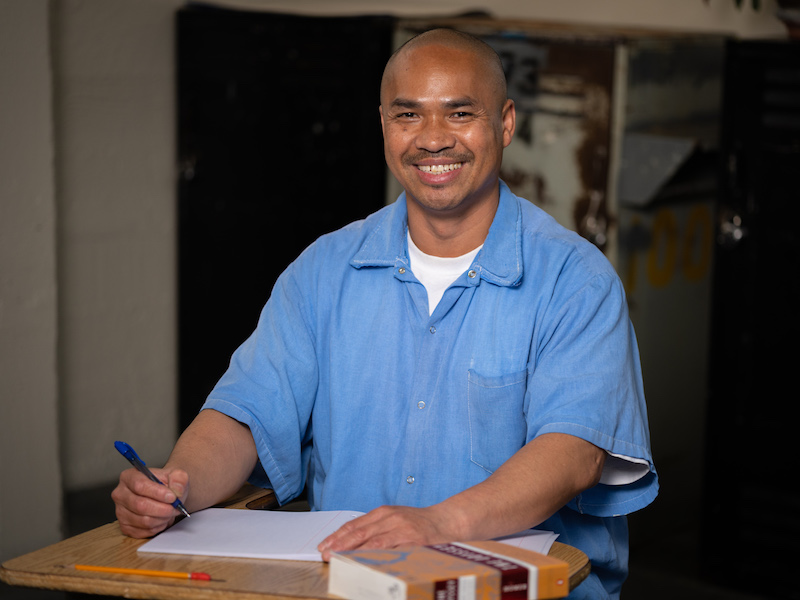
KAMSAN SUON
“In the beginning, I doubted myself and didn’t know if I had the intelligence to make it through the program—I had never written essays before. Now, I’m a writer and a poet. Writing has become a crucial part of my healing process. Writing helps me identify what went wrong in my life and my childhood, and it allows me to heal by expressing it. My passion for writing personal narrative and nonfiction stories keeps me grounded. I’m able to escape from reality and be anyone and anything. I can go anywhere, anytime.”
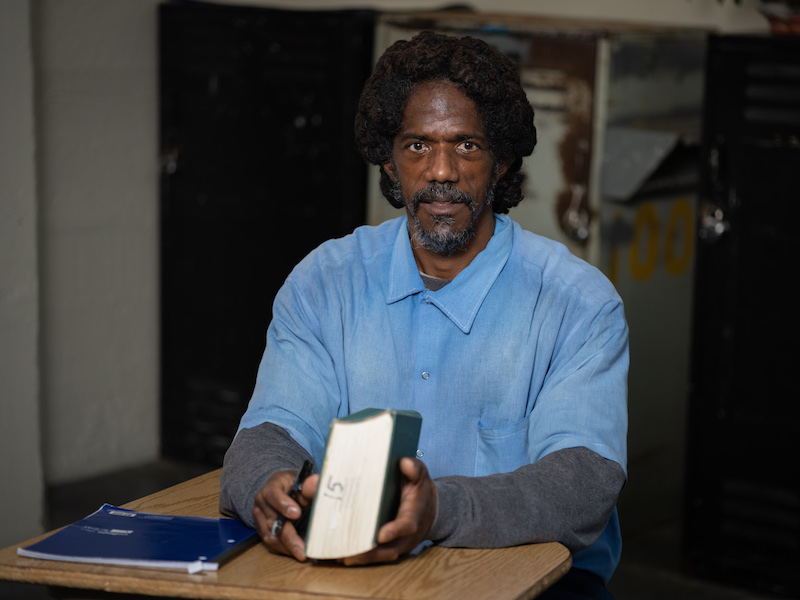
JERRY SMITH
“The College Program made me aware of life beyond my immediate surroundings. Now my aim is to help young people in my community with problems and challenges they have in setting goals. I’m from Los Angeles, from an area that’s gang-infested. I keep in touch with a lot of young people in my family now—I feel super obligated—I want them to learn from my situation. They are the future. I write them and ask them directly to stay in school. I try to provide a vision for the youth in my community to shift their focus from negative thoughts, to make them aware that they have value, and to recognize their strengths.”
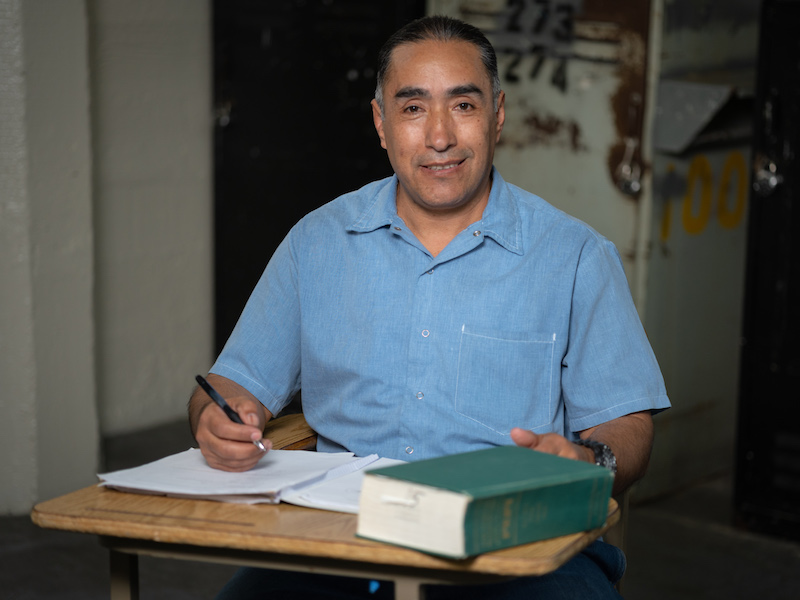
JUAN ESPINOSA
“For me the most challenging part of being a college student has been the language barrier. English is my second language and I have had to double up in my efforts to understand some of the lecture concepts given by the professors. There were lots of times when I did not understand something in class. I would not ask the teacher to repeat it because I did not want to look dumb in front of the whole class. Then, when it was time to give my presentation I really had to push myself because my English is not that good and I wanted to make certain that my teachers and peers could understand me.”
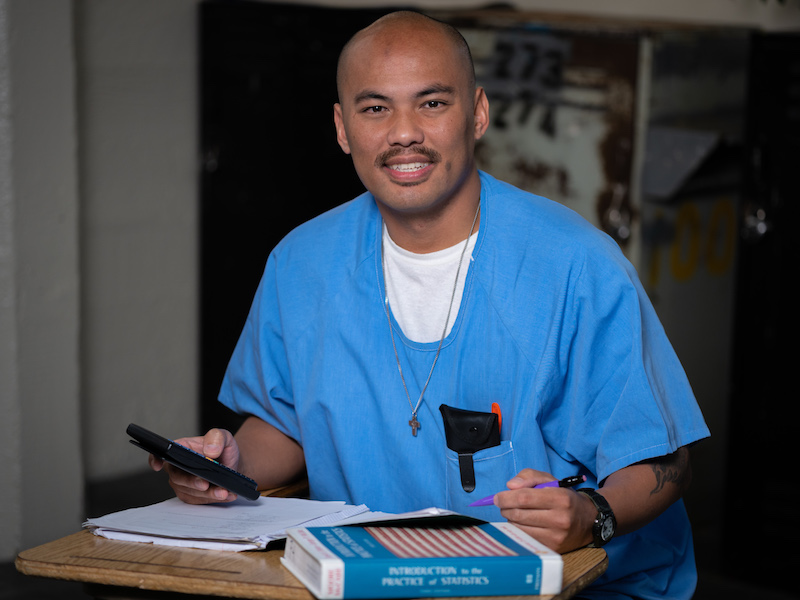
MATTHEW NGUYEN
“The College Program allowed me to better myself intellectually. It enabled me to have better relationships with my family by allowing me to communicate more effectively with them. The program helped me build up more self-esteem and changed my negative identity—one of a convicted felon—to a more dignified one as a college graduate.”
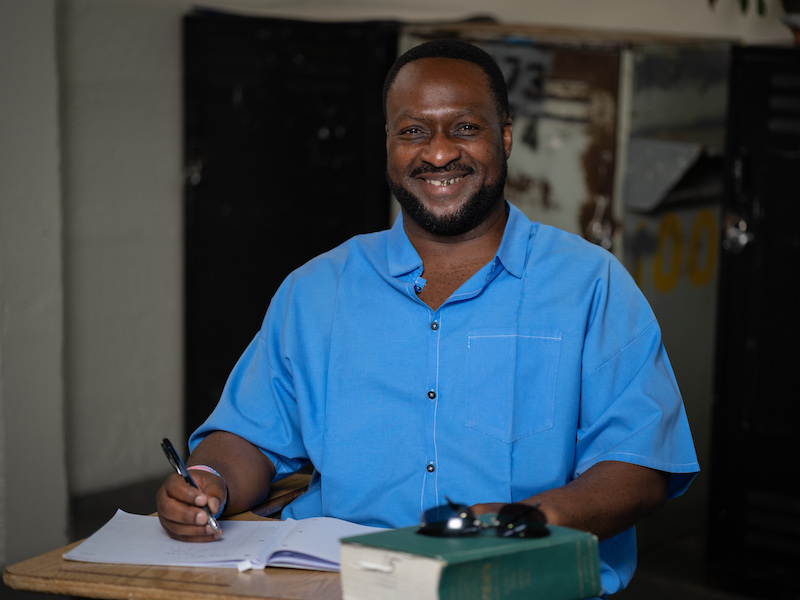
NYTHELL COLLINS
“I want to leave a legacy of empowerment. I hope that my life inspires men to seek education because knowledge is power, and with more power we can make meaningful changes in our lives and communities. Also, I would hope that my life shows members of outside communities that even though we’ve made bad choices that led us to prison, we are human, we can change, and we value education.”
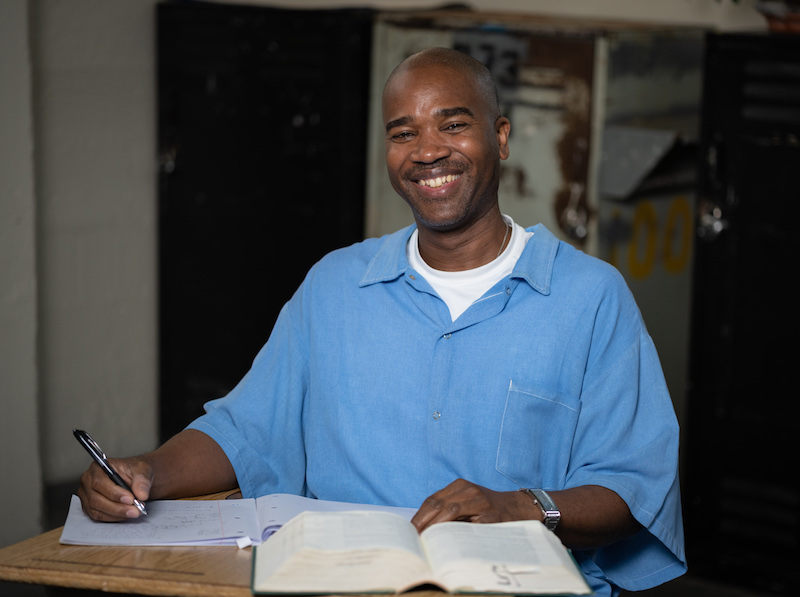
TIMOTHY YOUNG
“I never in a million years thought that I would be able to seek higher learning as well as attend college-level classes while incarcerated. This was both exciting and challenging because I never had the opportunity to do so prior to my incarceration. Now, as I prepare to graduate, I hope to leave a legacy for all new students demonstrating that hard work and perseverance is crucial in anything you set out to achieve in life. Maybe the work that I have done and continue to do will inspire others to do the same. I hope someone notices me and thinks, “If he can do it, I can do it.” I would then say to that person, ‘You can do more.’”
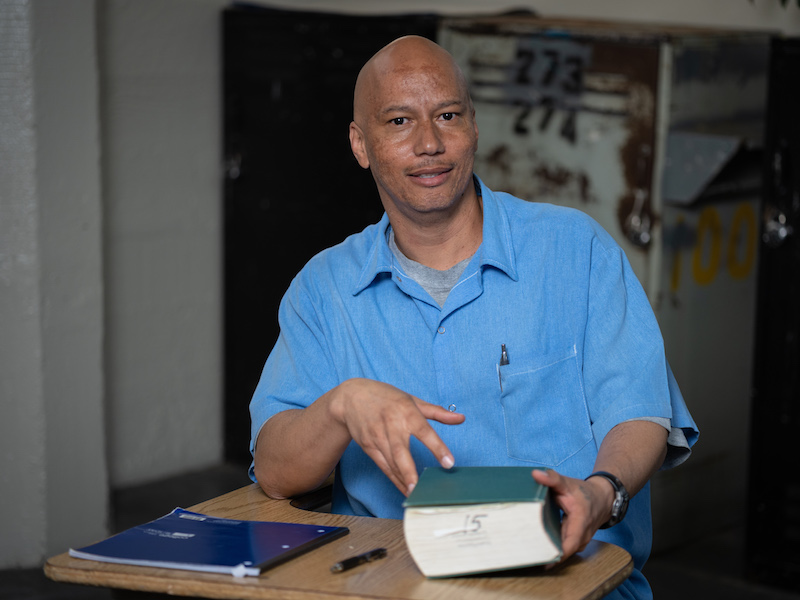
COREY MCNEIL
“I’d like to leave behind a “you-can-do-it” legacy, to be inspirational and show others what is possible. I dropped out of school around the 7th grade and got my GED in prison. After earning my degree, I no longer think of life as if I’m on the outside looking in. It’s put me on equal footing. It allows for better understanding and compassion in all of my interactions with people and in my personal relationships.”
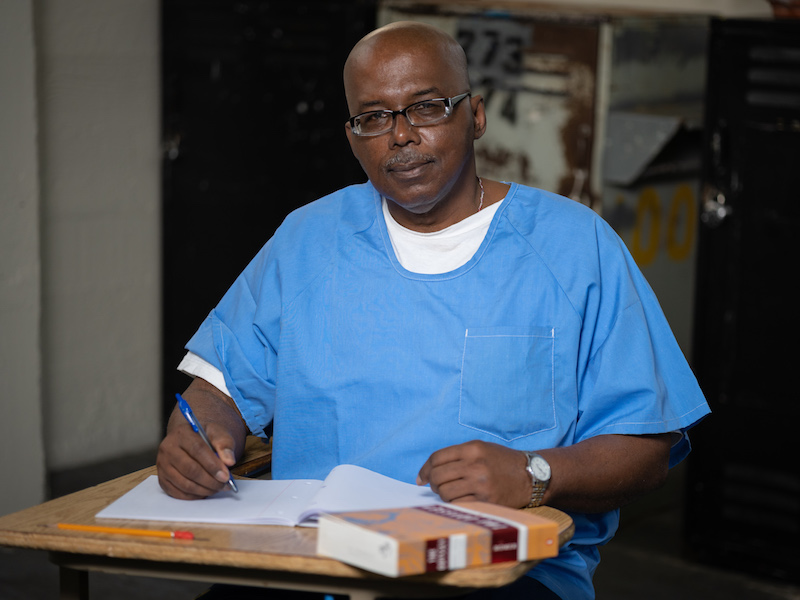
JAMES EVANS
“The people who helped me succeed were all of the people associated with Patten University. The community brings out the best in a person. I have stepped into a new world where I want to learn so much with so little time to do it. But I have learned so much and from time to time, my confidence on subjects comes through and I feel great—I feel empowered.”
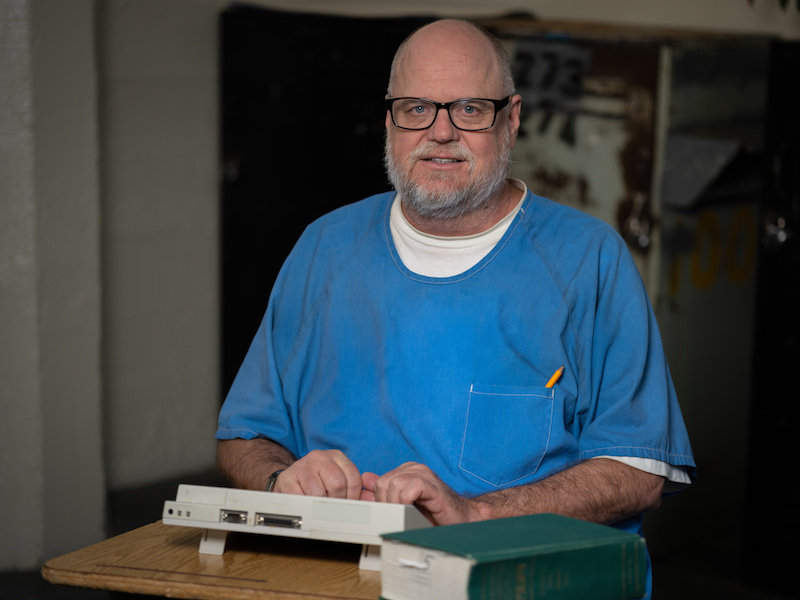
LOUIS CALVIN
“To my fellow graduates—we should all be encouraged to continue with positive programming. In the same way that we have had assistance from generous volunteers here in school, it is incumbent on us to show the way to those who come after us. Our education gives us the tools to make things easier for everyone around us. Let us set about our tasks in the same spirit of generosity which our volunteer advisors demonstrate here in the College Program.”
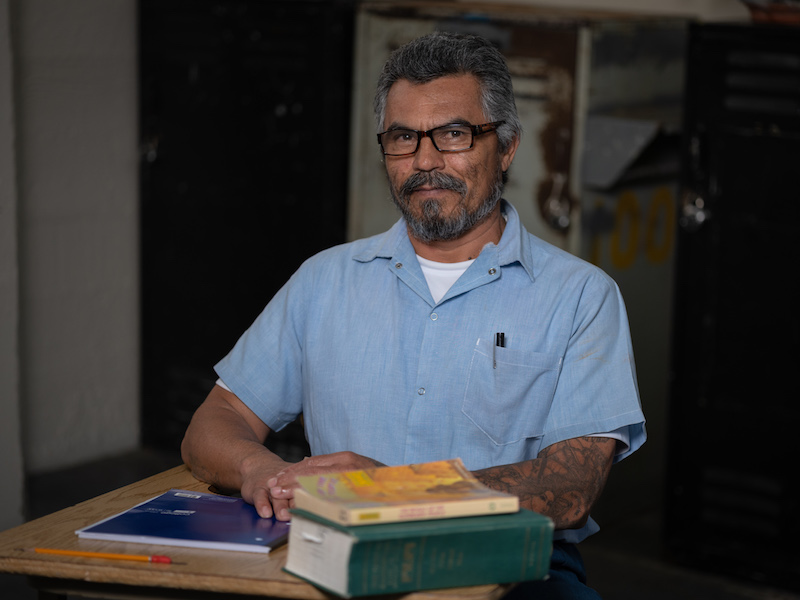
LUIS LOPEZ
“My beloved and wise mother Mercedes Molina is a formidable woman who believes that education is the most valuable thing a human being can pursue—that it allows one to live healthily, decently, comfortably, and to die honorably. She is so passionate about her belief that it feels magical. I believe every single word she says. I don’t like to think too much about what I’m going to do in my future life, but I can say this: whatever I decide to do, I’ll be able to ask logical questions, perceive solutions, weigh consequences, apply past insights to new contexts, and demonstrate self-evaluation in order to make wise decisions.”
